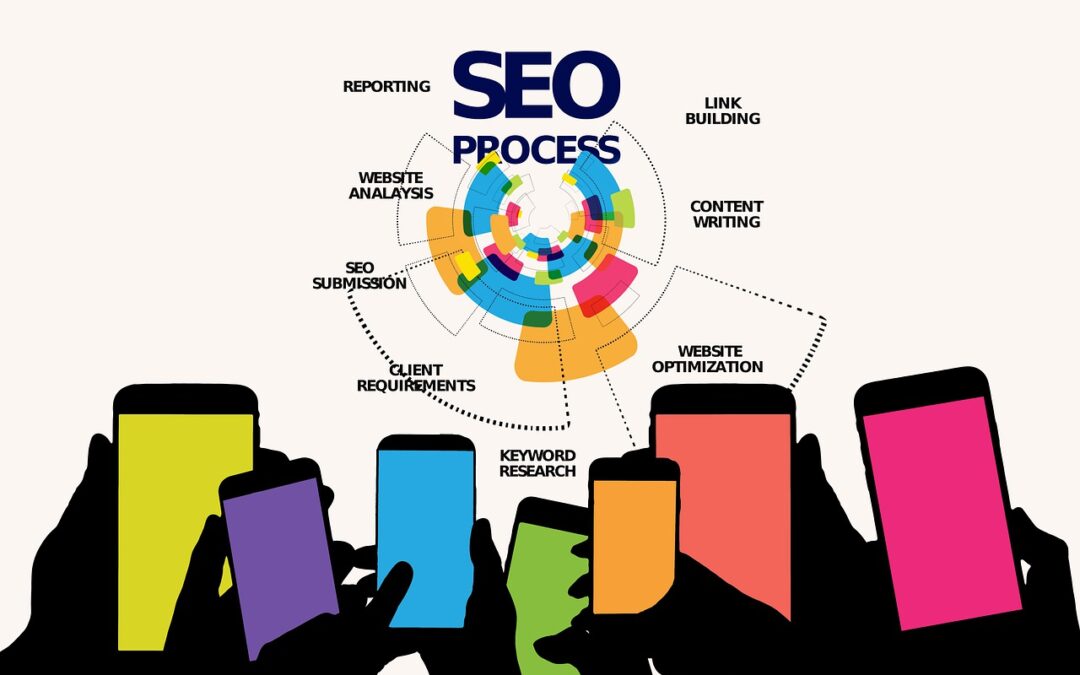
by Maulana T | Jun 23, 2023 | SEO Blog
You want to learn SEO, then. I love that! However, how much time does it take to learn seo? Can you master a subject more quickly than drinking a cup of coffee? My friend, the answer is that it all relies on a few different variables.
Let’s clarify one issue right away. You cannot study SEO in a short period. It necessitates patience, time, and effort. However, the correct tools and direction can accelerate the learning process.
Everyone can learn SEO according to our philosophy at IM Powerhouse, no matter where they are starting from. IM Powerhouse provides training programs and tools to help you understand the abilities you need to succeed, whether a beginner or a seasoned veteran.
How much time does it take to master SEO using IM Powerhouse? It depends on where you start and how committed you learn the SEO. Understanding the SEO fundamentals can take a little longer if you’re a beginner. But, on the other hand, you can start noticing results in as little as a few months with our thorough training and coaching.

However, if you have some prior SEO knowledge, you might be able to take up new techniques and skills far more rapidly. IM Powerhouse provides advanced training courses to help you develop your knowledge and stay on top of the game.
Of course, how much time you’re willing to invest in learning SEO will also influence how quickly you pick it up. Can you devote for SEO a few hours each week? Several hours per day? You’ll be able to learn the skills you need to achieve more SEO lessons quickly the more time you devote to it.
But it’s alright if you don’t become an SEO guru overnight. Every step counts in the adventure that is learning SEO. In addition, you’ll receive the resources and continual support from IM Powerhouse to keep developing and improving.

by Maulana T | May 24, 2023 | SEO Blog
Do you get sick of hearing about the SEO ABCs? Who has time for 26 letters when optimizing a website for search engines? Let’s face it. Fortunately, IM Powerhouse uses a less complicated strategy. It’s all about What are the 3 C’s of SEO.
What are the three C’s of SEO, then? They are content, code, and credibility. Before moving forward, let’s examine what makes these pillars so crucial.
We’ll start with the content. This C is about producing relevant, engaging, high-quality content that resonates with your target audience. No matter how fancy your website appears, no one will stay on it if the content is dull or uninteresting. But, like the cheese on a pizza, content keeps readers returning for more.
Then there is code. The technical elements of your website that impact its search engine results are the focus of this C. This covers site performance, mobile device responsiveness, and schema markup. Code is like a house’s foundation; the entire structure will collapse if it’s flimsy or unstable.

Furthermore, we have credibility. This C is all about establishing the authority and reliability of your website through outside links and social proof. This includes elements like customer feedback, endorsements, and top-notch backlinks. Like the secret sauce on a burger, credibility gives your website extra flavor that helps it stand out.
The three C’s of SEO with IM Powerhouse are now available. While these pillars appear straightforward, they are essential for search engine optimization and enhance your online visibility. In addition, you can build a strong foundation for any SEO campaign by concentrating on content, coding, and credibility.
The future? One day, with the help of the 3 C’s, your website will be at the top of search engine results.

by Maulana T | May 19, 2023 | SEO Blog
Be attentive, people. It’s time for IM Powerhouse to discuss What 4 pillars are important in SEO. So don’t worry if you’re scratching your head and need clarification on what I’m talking about. I protect you.
Four key SEO pillars serve as the cornerstone of every effective SEO campaign. These SEO pillars are content, technical SEO, on-page SEO, and off-page SEO. Let’s dissect it, shall we?
We’ll start with technical SEO. This pillar concentrates on the backend of your website and ensures it is optimized for search engines. Site speed, mobile friendliness, crawlability, and indexability are some examples. With good technical SEO, your website will get off the starting blocks in the fight for search engine rankings with its on-page SEO.

The content on your website should be optimized according to this pillar. This includes elements like the usage of pertinent keywords, the creation of quality content, and the organization of your website. On-page SEO is like the icing on the cake; it improves your website’s appearance and flavor.
The third option is off-page SEO. This pillar focuses on increasing the authority and credibility of your website through external links from other websites. Search engines will be more inclined to consider your website reliable and relevant if there are more high-quality links. In addition, it gives your brand instant legitimacy, similar to having a famous person promote it.
Not least among our topics is content. The main focus of this pillar is producing relevant, engaging, and high-quality content that appeals to your target market. Examples are infographics, videos, blog articles, and other content. Your website’s content is like its lifeblood; without it, it would perish.
Reach out to IM Powerhouse if you want to learn the SEO secrets and advance your website. Using their knowledge and expertise, they will work with you to develop a strong SEO strategy suited to your company’s particular requirements.

by Maulana T | Apr 5, 2023 | SEO Blog
Small businesses always want to boost their online presence and attract more customers. SEO can help you with it. SEO boosts your website’s Google ranking. Keyword research, on-page, off-page, and content creation are involved. How much does SEO cost for small businesses?
So, how much does seo cost for a small business? SEO costs depend on your business size, industry competitiveness, and website complexity. SEO costs $500–$10,000 per month. Small businesses may not need to invest so much to start SEO.
SEO freelancers and consultants are affordable for small businesses. Depending on experience and expertise, freelancers charge $50–$200 per hour. Businesses with a small budget but big goals should consider this. Freelancers can also customize their services.
Small businesses can also hire SEO agencies. SEO agencies offer audits, on-page optimization, link building, and content creation. Agencies may charge a monthly retainer or a one-time fee. SEO agencies can cost $1,000 to $10,000 per month, depending on services and size.

SEO cost goes beyond price. Consider ROI when calculating SEO costs for your small business (ROI). SEO can help your business rank higher on search engines, generating more traffic, leads, and revenue. Thus, investing in SEO is a long-term business strategy.
Several factors affect small business SEO costs. However, SEO freelancers and agencies are affordable options. SEO may seem expensive but consider the ROI and long-term benefits. Small businesses can attract more customers by working with a reputable SEO professional.
Tips to Find an Affordable SEO
Small business owners should research SEO service options. Tips for finding an affordable SEO solution for your small business:
First, determine your SEO budget. This helps you choose and avoid overspending.
Find Freelancers and Agencies. Compare SEO freelancer and agency prices and services. To ensure success, check client reviews and testimonials.
After narrowing your choices, request proposals from each freelancer or agency. This will clarify their services and pricing.
Remember that SEO is an investment in your business’s future. Consider ROI when choosing.
Finally, choose a reputable SEO provider with a successful track record. Check their certifications and SEO ethics.
SEO can help small businesses gain online visibility and customers. Smaller businesses can find affordable SEO options. Researching and working with a reputable provider can boost your SEO and revenue.

by Maulana T | Apr 15, 2022 | SEO Blog
If you already have experience with organic SEO, then be grateful because everything you learned earlier also applies to marketing in local businesses. However, there is a difference between local SEO and organic seo.
The main difference between local SEO and organic SEO is that organic SEO has a global or national audience, while local SEO narrows its focus to a limited geographic market that is located around the physical location of your business.
Local SEO is meant to make a business stand out in local search results. For example, on local business review platforms, Google location maps, Apple Maps, and connected interfaces.
Meanwhile, organic SEO is focused on the superiority of the results generated by traditional organic search engines. The role of this type of SEO is very important in the local campaign of a business. The organic Search Engine Result Page (SERP) localization obtained is the biggest form of personalization that Google does.
The organic authority that local businesses have earned can also affect the rankings of local SERPs. What is clear, both local SEO and organic SEO, are equally important to learn.

Separate Local SEO and Organic SEO Algorithms
The main principle of the difference between local SEO and organic SEO is the existence of separate algorithms, even though the two have many similarities. Likewise, with local businesses, all online brands go to great lengths to convince Google that they have the right to be the focus of relevant searches and stand out in the SERPs.
The difference between local SEO and organic SEO is seen from the concept of proximity. For example, a clothing retailer that has five branches in New York does not need to connect with global buyers to sell all of its wares.
However, the business needs to be prominent in the local organic SERPs so internet users who are looking for clothing and are located close to each branch can find it.
Organic SEO is widely applied by various online brands so that their business can compete in Google’s local organic SERP. This makes the line between organic and local SEO even more blurred.










